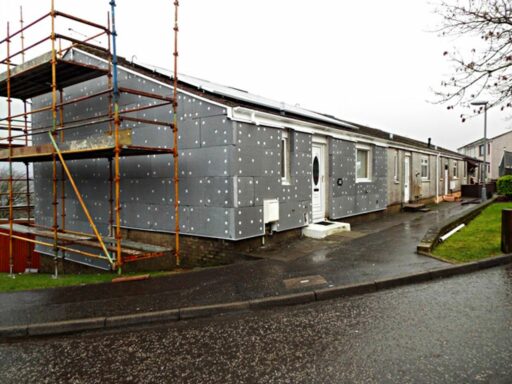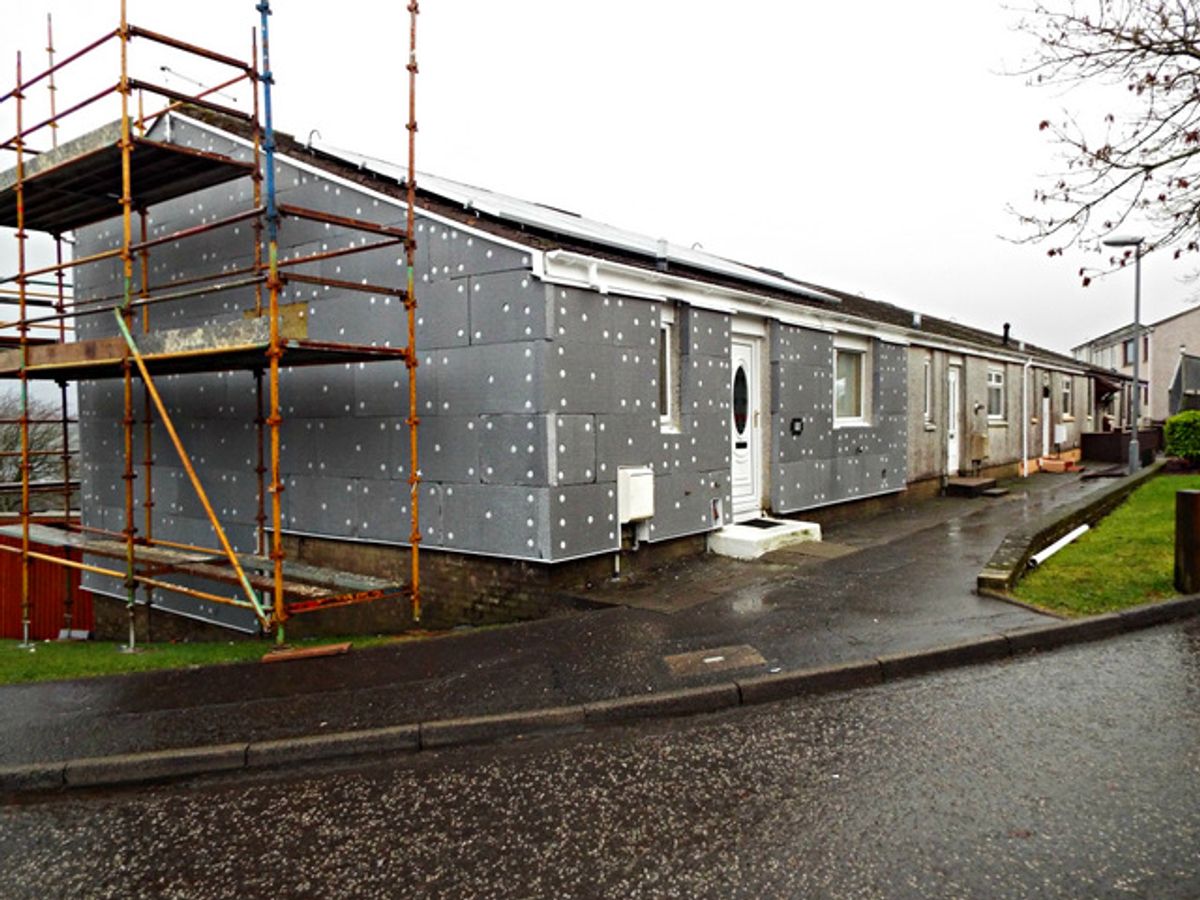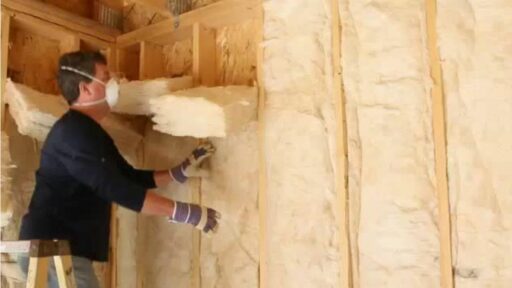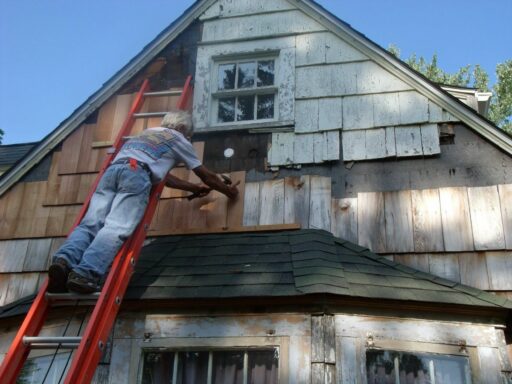Choosing the right pipe insulation contractor is critical for ensuring the efficiency and safety of your home’s piping system. A skilled contractor not only provides quality workmanship but also contributes significantly to the longevity and performance of your insulated pipes. This article will guide you through the process of selecting a contractor who meets your needs, from understanding their role and qualifications to making an informed financial decision and ultimately selecting the most suitable professional for your project.
Key Takeaways
- Understanding a pipe insulation contractor’s responsibilities and their impact on home efficiency and safety is the first step in making an informed choice.
- Assessing a contractor’s qualifications requires verifying credentials, evaluating past project success, and ensuring adherence to safety standards.
- Compare services by examining the types of insulation materials offered, specialized services provided, and the overall scope of work.
- Financial considerations are crucial; get clear on costs, analyze the cost-effectiveness of different insulated pipe supports, and compare bids from multiple contractors.
- Make the final decision by reading reviews, assessing professionalism and reliability, and confirming the contractor’s availability and project timelines.
Understanding the Role of a Pipe Insulation Contractor

Defining the Responsibilities
A pipe insulation contractor plays a pivotal role in ensuring the thermal efficiency and safety of a home’s piping system. Their primary responsibility is to install, repair, and maintain insulation on pipes to minimize heat loss or gain, prevent condensation, and protect against freezing. The scope of their work can vary greatly depending on the needs of the project, from residential to industrial applications.
- Assessing the insulation needs based on the type of piping and environmental conditions
- Recommending the appropriate insulation materials and thickness
- Installing insulation with precision to ensure maximum efficiency
- Conducting regular maintenance checks and repairs as needed
- Adhering to local building codes and safety regulations
It is essential to choose a contractor with high-quality workmanship, licenses, and insurance. Assess project scope and needs before selecting a contractor to ensure satisfaction and successful completion.
Importance in Home Efficiency and Safety
The role of a pipe insulation contractor extends beyond mere installation; it is pivotal in enhancing home efficiency and safety. Proper insulation of pipes can significantly reduce heat loss, potentially saving homeowners up to 35% of heat that would otherwise be wasted. This not only optimizes the heating system’s performance but also translates into substantial cost savings on fuel bills.
Insulating pipes is not just about energy efficiency; it also involves adhering to safety standards to prevent accidents and health hazards. Contractors must be adept at following safety procedures, including the safe removal of hazardous materials like asbestos when necessary.
Here’s a glimpse at the skills a pipe insulation contractor might need, with an emphasis on safety and efficiency:
- HVAC: 17.96%
- Tape Measure: 10.13%
- Safety Procedures: 10.03%
- Asphalt: 8.02%
- Mechanical Systems: 7.90%
Ensuring that your contractor is proficient in these areas is crucial for a successful insulation project that prioritizes your home’s efficiency and safety.
Career Paths and Specializations
The journey of a pipe insulator is not limited to a single role within the industry. Career advancement opportunities are abundant, with paths leading to various specializations and leadership positions. For instance, one may start as a sheet metal insulator and progress to roles such as a sheet metal mechanic, or even a foreman overseeing teams and projects.
Beyond these positions, individuals with a knack for entrepreneurship might venture into starting their own business as an owner or owner/operator. Others may find their niche in more technical roles, such as a welder or driver, or in supervisory capacities like a shift or site supervisor. The versatility of this career allows for transitions into related fields, with some professionals expanding their expertise to become electricians or electrical contractors.
The decision to specialize or pursue a managerial path can significantly impact one’s career trajectory in the pipe insulation industry.
Understanding the full scope of career possibilities is crucial for those considering or currently in the field of pipe insulation. It informs not only their immediate job choices but also their long-term professional development and success.
Assessing Contractor Qualifications

Verifying Credentials and Experience
Choosing the right pipe insulation contractor involves a critical evaluation of their credentials and experience. Ensure that the contractor holds a valid license to operate in your state, as licensing requirements vary across regions. A comprehensive guide, such as ‘The Ultimate Guide to Contractors License Requirements in Every State,’ can be an invaluable resource for understanding these prerequisites.
When assessing a contractor’s experience, consider the number of years they’ve been in business and the scope of projects they’ve handled. It’s also beneficial to review their portfolio of completed work to gauge their expertise in the field. Here’s a quick checklist to help you evaluate a contractor’s qualifications:
- Verify state-specific licensing
- Check for a history of completed projects
- Assess the diversity of their experience
- Inquire about any specialized training or certifications
Remember, a contractor’s past performance is often indicative of their future results. By thoroughly vetting their credentials and experience, you can make a more informed decision about their suitability for your project.
Evaluating Past Project Success
When choosing a pipe insulation contractor, it’s crucial to evaluate their past project success to ensure they can deliver the desired results. Start by examining their portfolio of completed projects, which should showcase a variety of insulation tasks they’ve handled. Look for projects similar to yours in scope and complexity to assess their capability to meet your specific needs.
- Customer Feedback: Seek out reviews and feedback, focusing on the contractor’s ability to handle the entire process efficiently, from laying the pipe to post-installation support.
- Installation Process: Inquire about their detailed installation process, including trench digging, pipe laying, and drainage management, to understand their approach to project execution.
It’s essential to scrutinize the project plans for any special materials or finishes that may be required. This attention to detail can reveal the contractor’s proficiency in handling complex requirements.
Finally, ensure that the contractor has a history of legal compliance and adheres to safety standards. This will protect you from potential liabilities and ensure that the work is done correctly and safely.
Ensuring Compliance with Safety Standards
When selecting a pipe insulation contractor, ensuring compliance with safety standards is not just a formality; it’s a critical component of the contractor’s qualifications. A reputable contractor will be well-versed in local laws and regulations, including those specific to trenching, excavating, and handling hazardous materials like asbestos.
Compliance with standards such as BS5422:2023 indicates a contractor’s commitment to safety and legal adherence. This not only protects workers but also homeowners and the environment.
Contractors should demonstrate their knowledge of safety procedures through their past projects and the skills of their workforce. Here’s a snapshot of the skills distribution in the industry:
- HVAC: 17.96%
- Tape Measure: 10.13%
- Safety Procedures: 10.03%
- Asphalt: 8.02%
- Mechanical Systems: 7.90%
This data reflects the importance placed on safety and technical expertise. Always verify that the contractor you are considering has a solid track record of following safety guidelines and regulations.
Comparing Services and Expertise

Types of Insulation Materials Offered
When selecting a pipe insulation contractor, it’s crucial to consider the variety of insulation materials they offer. Each material comes with its own set of benefits and suitability for different applications. For instance, fiberglass is known for its thermal performance and fire safety, while spray foam insulation provides excellent moisture resistance and energy savings.
- Fiberglass Insulation: Widely used due to its acoustic control and fire safety properties.
- Mineral Wool Insulation: Offers superior fire resistance and is often used for high-temperature applications.
- Foam Pipe Insulation: Provides a high level of moisture resistance, making it ideal for areas prone to dampness.
It’s essential to match the insulation material to the specific needs of your home to ensure optimal HVAC efficiency and sustainability. Contractors should be able to perform a cost analysis to help you understand the long-term investment and energy savings associated with each type of insulation.
Specialized Services: From Pipe Fusion to Meter Installation
When selecting a pipe insulation contractor, it’s crucial to consider the range of specialized services they offer. Contractors who provide comprehensive services from pipe fusion to meter installation can ensure a seamless integration of your piping system. Pipe fusion, a process that joins two pieces of pipe without the need for fittings, can significantly enhance the durability and efficiency of your system.
In addition to pipe fusion, contractors may offer services such as automated meter reading and waterworks solutions, which are essential for modern, efficient homes. Here’s a list of specialized services you might encounter:
- Jobsite Services
- Pipe Fusion
- Waterworks Solutions
- Automated Meter Reading (AMR)
- Geo & Stormwater Management
- Underground Utility Municipal Services
Evaluating the installation process is another critical aspect. A competent contractor will provide a detailed explanation of their installation process, including trenching, laying the pipe, and ensuring proper drainage. > Ensure they have a clear plan for managing drainage pipes and that water is efficiently directed away from your property.
Lastly, it’s important to verify that the contractor adheres to all safety and legal compliance standards, including trenching and excavating safety, to prevent issues such as blockages and pipe bursting.
Understanding the Scope of Work
When selecting a pipe insulation contractor, it’s crucial to have a clear understanding of the scope of work they will undertake. This encompasses not only the physical installation of insulation but also the preparatory and follow-up activities that are essential for a successful project. A comprehensive scope of work should detail all the tasks involved, from the initial assessment of your piping system to the final quality checks and cleanup.
- Initial site assessment and measurements
- Selection of appropriate insulation materials
- Installation of insulation around pipes
- Sealing and finishing work to prevent heat loss
- Post-installation inspection and quality assurance
Ensuring that the contractor provides a detailed scope of work can prevent misunderstandings and ensure that all aspects of the job are completed to your satisfaction. It’s a critical step in the process that helps align expectations and provides a basis for evaluating the project’s completion.
Remember to discuss any specific requirements or concerns you may have, such as the need for additional services like pipe fusion or meter installation. By doing so, you can ensure that the contractor is fully prepared to meet your needs and that the project is executed efficiently and effectively.
Financial Considerations and Budgeting

Getting Clear on Costs and Payment Terms
Understanding the financial aspect of hiring a pipe insulation contractor is crucial. Ensure that all costs are transparent and itemized to avoid surprises later on. It’s important to discuss payment terms upfront, including the payment schedule, any required deposits, and the final payment.
- Initial Consultation Fee (if applicable)
- Material Costs
- Labor Charges
- Additional Services (e.g., removal of old insulation)
- Taxes and Permits
When reviewing the cost breakdown, consider the long-term savings that quality insulation can provide. Efficient insulation reduces energy bills and prevents costly damage from frozen or burst pipes.
Always ask for a written estimate that details the scope of work and the associated costs. This will serve as a reference throughout the project and help in comparing bids from different contractors.
Analyzing Cost-Effectiveness of Insulated Pipe Supports
When considering the cost-effectiveness of insulated pipe supports, it’s crucial to understand that these supports can significantly reduce heat loss in systems operating above ambient temperatures. Despite their limited contact area, improperly insulated supports can lead to substantial energy inefficiency, negating other energy-saving measures.
The selection of insulated pipe supports should be based on several factors to ensure both performance and cost-effectiveness:
- Thermal performance requirements
- Load bearing capacity
- Fire resistance level
- System temperature
- Integrity of the system
Standards such as BS5970 recommend the use of load bearing insulated supports, especially for chilled water and low temperature installations, and advise against the use of wooden blocks due to poor insulation performance. Alternatives like phenolic blocks and mineral wool are now preferred for their superior thermal efficiency.
It’s essential to balance the initial investment in quality insulated pipe supports with the long-term energy savings they offer. This balance will determine the true cost-effectiveness of the insulation solution chosen for your HVAC services.
Seeking Estimates and Comparing Bids
When you’re ready to take the next step in your pipe insulation project, seeking estimates from various contractors is crucial. It’s not just about finding the lowest price; it’s about ensuring you get the best value for your investment. Start by understanding the estimate process to ensure transparency and avoid any hidden costs.
Comparing bids can be a complex task, but it’s essential for making an informed decision. Here’s a simple list to guide you through the comparison:
- Review the detailed breakdown of costs.
- Check for any special offers or discounts, such as new estimate discounts or service call reductions.
- Assess the timeline proposed for project completion.
- Ensure that the scope of work is clearly defined and matches your expectations.
Remember, a lower bid might not always equate to better value. Consider the contractor’s quality of work, experience, and reputation alongside the cost.
Finally, don’t hesitate to reach out to the contractors for clarification or negotiation. A reputable contractor will be transparent about their pricing and happy to discuss any concerns you may have.
Making the Final Decision

Reading Reviews and Gathering Referrals
When narrowing down your choices for a pipe insulation contractor, reading reviews and gathering referrals is a crucial step. Customer feedback, often found on the contractor’s website or third-party review platforms, provides real-world insights into the quality of their work and customer service. Look for patterns in the reviews that highlight the contractor’s strengths and weaknesses.
Referrals from friends, family, or industry professionals can be invaluable. They not only vouch for the contractor’s reliability but also give you a chance to ask detailed questions about their experience. Here’s a simple list to help you gather useful information:
- Ask about the contractor’s punctuality and professionalism.
- Inquire if the project was completed within the budget and timeframe.
- Seek details on how the contractor handled any issues that arose.
Remember, a contractor’s reputation in the community is often a reflection of their commitment to quality and customer satisfaction. Gathering this information will help you make an informed decision and choose a contractor who is likely to meet your expectations.
Assessing the Level of Professionalism and Reliability
When selecting a pipe insulation contractor, assessing their level of professionalism and reliability is paramount. A contractor’s professionalism is often reflected in their attention to legal compliance, adherence to safety standards, and the quality of customer interactions.
- Legal Compliance: Ensure the contractor is well-versed in local laws and regulations, which may include specific requirements for insulation work.
- Safety Standards: Verify that the contractor follows industry safety protocols to protect your home and their workers.
- Customer Service: Evaluate how the contractor communicates, addresses concerns, and follows through on commitments.
It’s essential to consider how a contractor manages the entire process, from initial consultation to project completion. This includes their punctuality, the clarity of their communication, and their responsiveness to any issues that arise post-installation.
Remember, a contractor’s reliability is not just about meeting deadlines, but also about providing a consistent quality of work and maintaining a clean and organized job site. By taking these factors into account, you can better predict the success of your insulation project.
Confirming Availability and Project Timelines
Before finalizing your choice of a pipe insulation contractor, confirming their availability and understanding their projected timelines for your home project is crucial. A contractor’s schedule can significantly impact the start and completion dates of your insulation work, potentially affecting your own plans and living situation.
- Ask for a detailed timeline of the project, including start and finish dates.
- Inquire about any potential delays that could arise and how they would be handled.
- Ensure that the contractor’s timeline aligns with your own availability and requirements.
It’s essential to establish a clear timeline that accommodates both the contractor’s ability to deliver quality work and your needs as a homeowner. This mutual understanding helps prevent future conflicts and ensures a smoother project flow.
Remember, construction timelines are not just dates on a calendar; they are a visual representation of the project’s schedule, breaking down different stages and ensuring that all parties involved are on the same page.
Conclusion
Choosing the right pipe insulation contractor for your home is a critical decision that can impact the efficiency, safety, and longevity of your plumbing and heating systems. As we’ve explored in this article, it’s essential to consider a contractor’s experience, the quality of materials they use, their understanding of energy efficiency, and their adherence to safety standards. Remember to ask for references, verify certifications, and ensure they have a solid understanding of the various types of insulated pipe supports and the specific needs of your project. By taking the time to select a skilled and reliable contractor, you can ensure that your pipe insulation is installed correctly and performs optimally for years to come.
Frequently Asked Questions
What are the key responsibilities of a pipe insulation contractor?
A pipe insulation contractor is responsible for installing insulation on pipes and equipment systems to maintain efficiency and safety. They measure, cut, and fit insulation, secure it in place with machinery, and follow safety guidelines.
How can I verify a contractor’s qualifications and experience?
To verify a contractor’s qualifications, you can ask for certifications, check references, review past project portfolios, and confirm their adherence to safety standards and regulations.
What types of insulation materials should I expect a contractor to offer?
Contractors typically offer various insulation materials, including fiberglass, foam, and rubber. They should be able to recommend the best type for your specific needs based on thermal performance, fire resistance, and cost-effectiveness.
How do I budget for pipe insulation services?
To budget for pipe insulation, obtain clear cost estimates from several contractors, understand the payment terms, and compare the cost-effectiveness of different insulated pipe supports and materials.
What factors should I consider when making the final decision on hiring a contractor?
When making the final decision, consider the contractor’s professionalism, reliability, past customer reviews, referrals, and their ability to meet your project’s timeline.
How long does it typically take to become a pipe insulator?
Becoming a pipe insulator typically takes 4 to 10 years, including on-site training and on-the-job experience. Career progression can lead to various roles such as foreman, contractor, or a specialist in the field.





